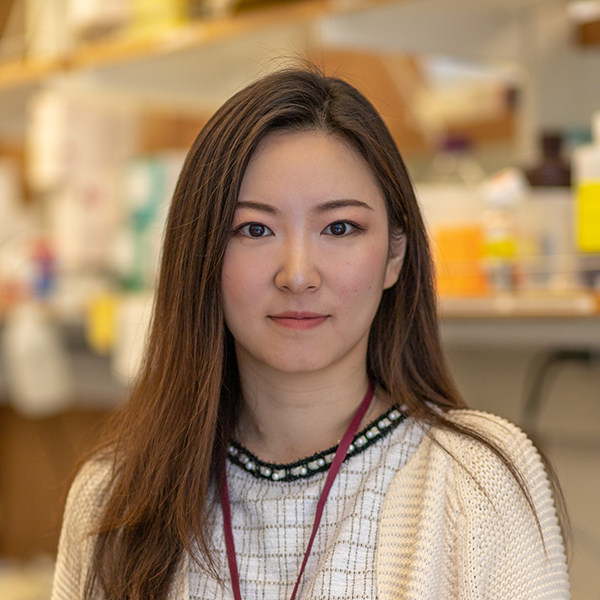
Yichen Li has always been driven to understand the world around her. Growing up in an Eastern province in China, Li’s inquisitive nature steered her toward science.
“When I was a girl, I wouldn’t stop asking my dad questions, such as what is light, electricity or heat,” she said.
Li’s father shared the same delight in learning about the sciences. He always had an answer for her, until her questions became too advanced. He then bought her books that laid the foundation for her love of the sciences.
Li majored in biochemistry and virology at HAN University of Applied Sciences in the Netherlands. As an undergraduate, she also began reading scientific papers in the field of neuroscience. As her interest grew, she earned a scholarship that enabled her to intern at The Netherlands Institute for Neuroscience under the mentorship of Dick Swaab, a professor of neurobiology at the University of Amsterdam. As a member of his lab, she used neural stem cells to study Alzheimer’s disease.
“His research had a big impact on me,” said Li, “and it taught me how much there is still to be learned about the brain and stem cells.”
Through Swaab’s lab, Li was introduced to a second mentor, Silvia Marino, a professor at the Blizzard Institute at Queen Mary University of London. Inspired by Marino’s research, Li completed an undergraduate research project about neural stem cells in cancer patients.
Li next earned a master’s degree in neuroscience at Imperial College London. As a master’s student, she studied the relationship between deposits of a toxic protein known as amyloid, the brain’s metabolic decline and mild cognitive impairment. She also performed research about traumatic brain injury.
After graduating with her master’s degree, Li decided to seek a lab position, and a friend recommended that she contact Justin Ichida, who is the John Douglas French Alzheimer’s Foundation Associate Professor of Stem Cell Biology and Regenerative Medicine at USC. Li spent over a year in his lab as a research technician, working to develop potential treatments for amyotrophic lateral sclerosis (ALS) or Lou Gehrig’s disease, which is a fatal neurodegenerative disease involving the breakdown of nerve cells in the brain and spinal cord.
Inspired by her research experiences, Li furthered her scientific education by earning a PhD in neurobiology and neurosciences at the University of Oxford, where studied brain development using stem cells from patients with schizophrenia.
Li then returned to the Ichida Lab as a postdoctoral researcher, and was awarded the ALS Association Milton Safenowitz Postdoctoral Fellowship to support her investigations into the causes of “sporadic” ALS, which are cases where the disease doesn’t run in families. Ninety percent of ALS cases are sporadic, while only ten percent have a known genetic origin.
“One of the bottlenecks to understanding this disease is the highly complex and variable genetic backgrounds that give rise to it,” Li said.
Through her research, Li hopes to identify common threads among ALS patients of different genetic backgrounds in order to enable earlier diagnosis and interventions.
Li plans to continue dedicating her life to research and aspires to lead her own lab.
“It is astonishing to me to learn how much we don’t know about the brain,” she said, “and how much there is left for us to discover.”
